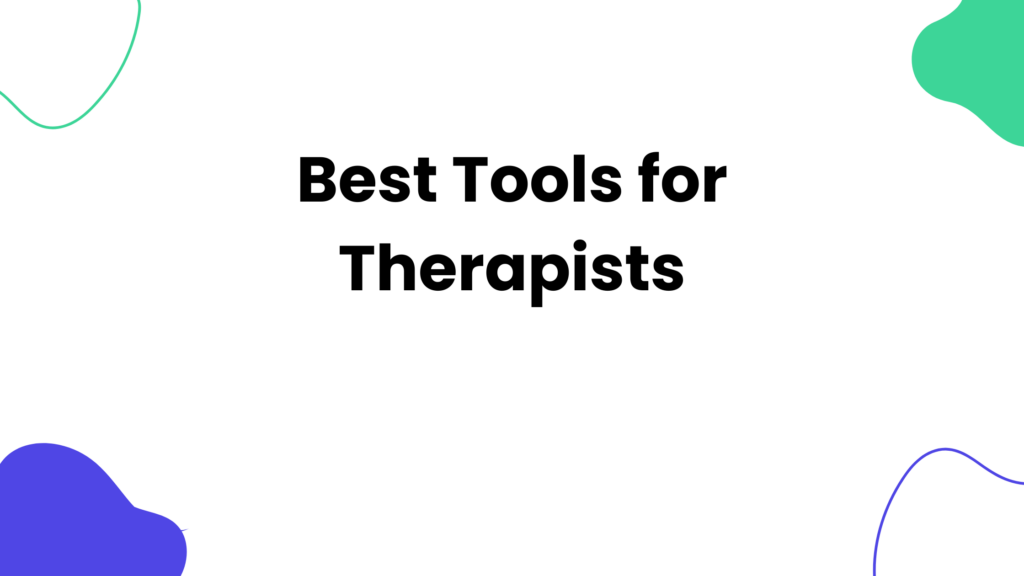Therapy is a treatment method that can help people with emotional and mental health issues. Usually, the therapy process is supported by professional therapists and special tools tailored to the complaints of each patient. What therapy tools are used, and what are their functions? Check out the following explanation.
How to Use Therapy Tools
Mental health professionals use therapy tools to help diagnose, evaluate, and treat psychological and emotional issues. These tools can provide valuable information about a patient’s mental health status, personality traits, and areas of concern that need to be addressed during therapy sessions. Here are some steps on how to use therapy assessment tools:
Gather relevant information about the patient.
Before using a therapy assessment tool, gathering relevant information about the patient, such as their medical history, past and current mental health issues, family background, etc., is important before using a therapy tool. This will help you create an accurate profile of them before proceeding with the assessment.
Choose the right tools for evaluation.
You must select the appropriate assessment tools depending on the patient’s issues and specific needs. Standard assessment tools include psychometric tests, interviews, questionnaires, self-report scales, and observation techniques.
Administer the tool properly.
Once you have chosen the right assessment tools for the patient, it is important to administer them properly to obtain accurate results. This includes setting up a comfortable environment and providing clear instructions to the patient.
Analyze the results.
After administering the assessment tool, it is important to analyze the results to accurately diagnose the patient’s condition and develop an effective treatment plan.
The Best Tools for Therapists
- Traditional Board Games
- Counselling Games
- Therapy Workbooks
- Drawing Supplies
- Play Dough
- Toys
- Puppets
- Doll House
- Smart Phone
- Puzzles
Traditional Board Games
Most therapists depend on traditional board games for their therapy sessions because children are already familiar with them and enjoy playing them again. It gets easy for the therapists to start with the games that the children already know and love playing. Such games make traveling from real life to the therapeutic environment easy.
Counselling Games
There are specific counseling games for all sorts of children’s problems. Dr. Richard Gardner invented the first therapeutic game in 1973, titled the ‘Talking, Feeling and Doing’ game. Hundreds of games are invented for therapeutic sessions that meet the needs of children.
Therapy Workbooks
Therapeutic workbooks have a psycho-educational strategy to solve the problems. Such workbooks help solve emotional and behavioral problems. These workbooks have a lot of activities that can also be sent home for therapy sessions and homework.
Drawing Supplies
Children are more inclined towards art than workbooks. Children love to draw, colour, and paint things. Art provides a sense of relief to the children so the drawing supplies can help a great deal with therapy sessions. The kids communicate well using art. Therapists keep the art materials like pencils, colours, crayons, stickers, and other such items.
Play Dough
Playing dough is an excellent tool for releasing tension and stress. Children mold, stretch, and squish the dough to relieve themselves and fight against the odds. It is another essential element that a therapist needs to have.
Toys
All age groups of children love toys. Therapists keep different toys, like dolls, balls, bikes, etc., to meet the needs of children. Playing with toys relaxes a child, and they can commute their thoughts easily.
Puppets
Puppets are considered the best replacement for role-playing and letting the children communicate with the therapist. A child who needs extra care and special needs can easily engage with the puppets.
Doll House
Doll Houses are not only for girls. The boys also see it as a sense of relief because it symbolizes shelter, safety, and loved ones. It is another exciting item for role-playing, and children can express their pre-verbal issues.
Smart Phone
A smartphone is a technological device with many options to deal with children. Thousands of applications are available that meet special children’s needs during therapy sessions.
Puzzles
Puzzles are a great way to engage a child and get him/her to use his/her mental ability to solve it. Puzzles help in therapeutic sessions to give children a sense of victory after completing the puzzle.
Conclusion
Therapy assessment tools are essential for mental health professionals as they provide valuable information about a patient’s mental health status and help create an accurate diagnosis and treatment plan. Following the steps above, you can ensure that these therapy tools are used properly so the therapy process can succeed.
Related Articles:




